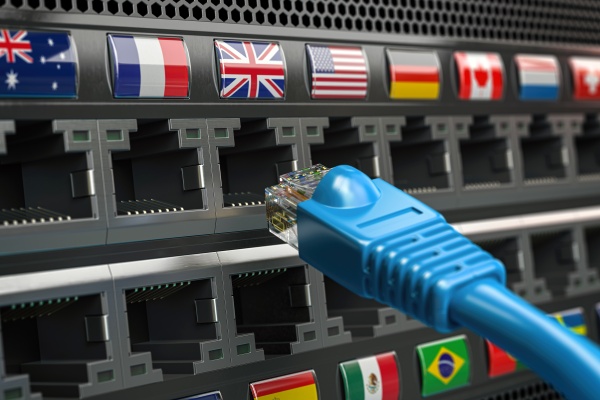In today’s digital era, safeguarding your online activity has become more crucial than ever. With cyber threats and privacy breaches on the rise, protecting your personal data and internet usage is of utmost importance. A Free VPN (Virtual Private Network) is a valuable tool that can help you maintain online privacy and security without costing a penny. In this article, we will explore how to protect your online activity using a free VPN and the best free VPN services available.

Post Contents
Understanding the Importance of Online Privacy
The internet is a vast and interconnected network where data is constantly exchanged between users and servers. While this connectivity enhances our lives, it also exposes us to potential risks, such as data theft, surveillance, and identity fraud. Online privacy refers to the protection of personal information and internet usage from unauthorized access, ensuring that you have control over your data.
What is a VPN, and How Does It Work?
A VPN is a secure and encrypted connection that routes your internet traffic through a server located in a different geographic location. By doing so, a VPN masks your real IP address and encrypts the data transmitted, making it difficult for anyone to intercept or monitor your online activities.
Benefits of Using a Free VPN
Utilizing a free VPN offers several advantages, including:
- Enhanced Privacy: A free VPN hides your IP address and encrypts your data, providing an extra layer of privacy while browsing the internet.
- Access to Geo-Restricted Content: With a free VPN, you can access websites and content that may be restricted in your region.
- Public Wi-Fi Security: When using public Wi-Fi, a free VPN helps protect your sensitive information from potential hackers and snoopers.
Top Free VPNs for Online Privacy
Several free VPN services offer a combination of privacy features and ease of use. Here are some top free VPNs worth considering:
1. Hola VPN
Hola VPN is a popular free VPN that allows you to access geo-blocked content and browse the web anonymously. It operates using a peer-to-peer network, enabling users to share their unused bandwidth with others.
2. TunnelBear
TunnelBear is known for its user-friendly interface and robust security features. It offers a limited free plan with 500MB of data per month, making it suitable for occasional use.
3. ProtonVPN
ProtonVPN offers a free plan with no data limits and strong encryption. It prioritizes user privacy and does not log user activity, ensuring a high level of anonymity.
4. Windscribe
Windscribe provides a generous free plan with 10GB of data per month and a wide range of server locations. It also has a built-in ad and malware blocker.
5. Hotspot Shield
Hotspot Shield offers a free plan with a reliable and fast connection. It uses military-grade encryption to secure your internet traffic.
How to Choose the Right Free VPN for You
When selecting a free VPN, consider the following factors:
Security Features
Ensure the VPN offers robust encryption and security protocols to safeguard your data.
Data Limitations
Check the data limits of the free plan, as some VPNs may impose restrictions on monthly usage.
Server Locations
Look for a VPN with server locations in countries you want to access geo-blocked content.
Device Compatibility
Ensure the VPN is compatible with your devices and operating systems.
Setting Up and Using a Free VPN
Using a free VPN is generally straightforward:
Step-by-Step Guide
- Download and install the VPN app on your device.
- Launch the app and create an account (if required).
- Connect to a server of your choice.
Common Troubleshooting Tips
- If you encounter connectivity issues, try connecting to a different server.
- Clear your browser cache and cookies to resolve website access problems.
Precautions and Limitations of Free VPNs
While free VPNs offer convenience, they have some limitations and potential downsides:
1. Advertisements and Data Collection
Free VPNs may display ads and collect user data for marketing purposes.
2. Speed and Performance Issues
Free VPNs may have slower connection speeds due to a high number of users sharing limited resources.
3. Legal and Jurisdictional Concerns
Check the VPN’s privacy policy and terms of service to understand how your data is handled.
Additional Tips for Enhancing Online Privacy
In addition to using a free VPN, here are some extra measures to safeguard your online activity:
- Regularly update software and apps to patch security vulnerabilities.
- Use strong passwords and enable two-factor authentication for added protection.
- Avoid clicking on suspicious links or visiting unsecured websites.
- Enable private browsing mode in your web browser to prevent tracking.
FAQs
Are free VPNs safe to use?
While some free VPNs are safe and reliable, others may compromise user privacy through advertisements and data collection. It’s essential to choose a reputable free VPN service with a transparent privacy policy.
Can a free VPN replace a paid VPN?
Free VPNs are suitable for basic privacy needs, but they may not offer the same level of security and features as paid VPNs. If you require advanced security and unrestricted access, a paid VPN might be more suitable.
Do free VPNs work with streaming services?
Some free VPNs may work with streaming services, but their limited server locations and slower speeds may affect streaming quality. Paid VPNs often provide better performance for streaming purposes.
Are there any risks of using a free VPN?
Free VPNs may display advertisements, collect user data, or have slower connection speeds due to a high number of users. It
Conclusion
In conclusion, protecting your online activity with a free VPN is an effective way to enhance your privacy and security while browsing the internet. By using a reputable free VPN service and implementing additional privacy measures, you can enjoy a safer and more anonymous online experience. Remember to consider the factors that matter most to you when selecting a free VPN, and always stay cautious when sharing personal information online.